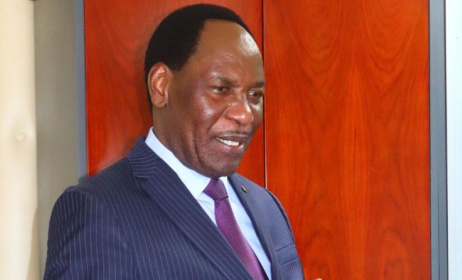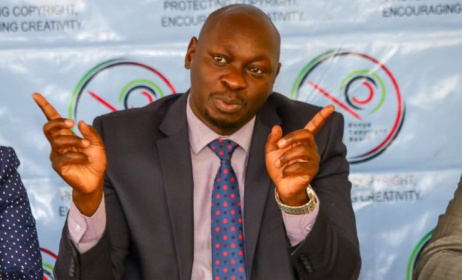Lobby group warns against latest Kenyan copyright amendment bill
Kenyan lobby group Partners Against Piracy (PAP) is objecting to a proposed repeal of internet service provider (ISP) provisions in Kenya’s Copyright Act ahead of a parliamentary sitting on 24 January.
 Homa Bay County woman representative Gladys Wanga is behind the latest copyright amendment bill in Kenya. Photo: Twitter
Homa Bay County woman representative Gladys Wanga is behind the latest copyright amendment bill in Kenya. Photo: Twitter
The last copyright amendment bill was signed into law by President Uhuru Kenyatta in October 2019. Its provisions detail the legal basis and incentives for improved cooperation from ISPs to support rights holders in their anti-piracy fight within the country’s borders and beyond. These include how copyright holders can request ISPs to take down flagged content and collaborate with the authorities to prosecute content pirates. The law also informs the High Court of Kenya’s mandate in handling copyright violations.
The new amendment bill, sponsored by Homa Bay County woman representative Gladys Wanga and currently in the public participation stage, could see the exclusion of the Copyright Act’s sections 35B, 35C and 35D. Wanga had stated that the formulation of the amendment bill followed deliberations with former prime minister Raila Odinga, noting that “the object of the bill is to provide for a fair formula for sharing of revenue from ringback tunes between the artists or copyright holders and the telecoms companies.”
The new bill proposes 52% earnings for artists for ringback tones as opposed to the current 30%. Despite objecting to the exclusion of the act’s aforementioned sections, the multisectoral PAP coalition says it supports the increase of revenue to rights holders for ringback tunes.
“To be clear, we’re only asking that the proposal to repeal the ISP-related provisions in the Copyright Amendment Act 2019 be removed from this bill,” PAP convener and PHAT! Music & Entertainment founder Mike Strano told Music In Africa. “If the current ISP-related provisions in the Copyright Amendment Act 2019 are enforced, the impact on the entire creative industry, not just music, would be an additional Sh92 billion ($811m) annually, including an estimated Sh16.25 billion in taxes to government and Sh14.31 billion to local content creators. Not only will this revenue help the industry to fully recover from the financial blow dealt by the COVID-19 pandemic, it would also catalyse job creation and attract investment.”
PAP added that instead of curbing crime, repealing sections 35B, 35C and 35D of the act could enable the continuation of fraudulent online activities.
“The repeal of these important provisions will continue to abet the illegal operations involved in offering pirated content online, including crimes like tax evasion, identity theft, data ransom, money laundering and fraud,” the lobby group, which includes the Intellectual Property Owners Association of Kenya, the Kenya Publishers Association, the Kenya Film and Television Professional Association, MultiChoice Kenya, the Music Associations Alliance of Kenya, Boomplay Music, Mdundo, PHAT! Music & Entertainment and Sauti Sol-owned label Sol Generation, among others, warned. “These same crime groups are also involved in trafficking of humans, organs, drugs, weapons and more, as well as terrorism, contract killing and counterfeiting.”
PAP also fears that the proposed bill contravenes provisions on intellectual property rights in Kenya’s Constitution, which it suggests are akin to al other proprietary rights. It says the amendment bill will make it difficult for ISPs to recoup investments, as some 99% of potential revenue is lost to online piracy. Instead of moving to strike the ISP-related provisions from the current law, PAP has implored Parliament to “consider changes to make the law clearer and more effective, in full cooperation with the ISPs, thus ensuring the sustainability of the Kenya creative industry and the safety of our country from such crimes.”


































Comments
Log in or register to post comments